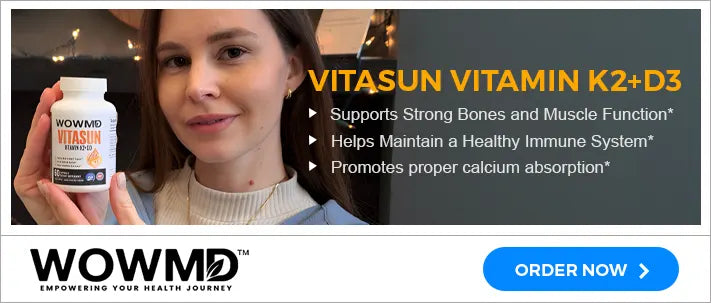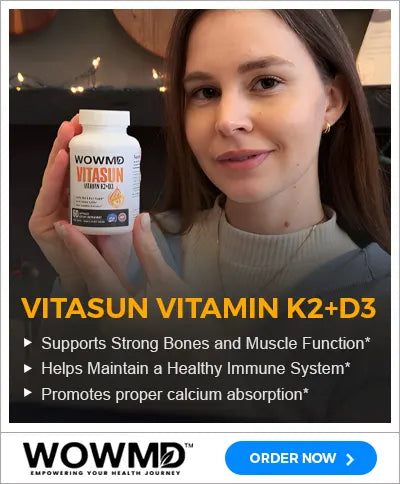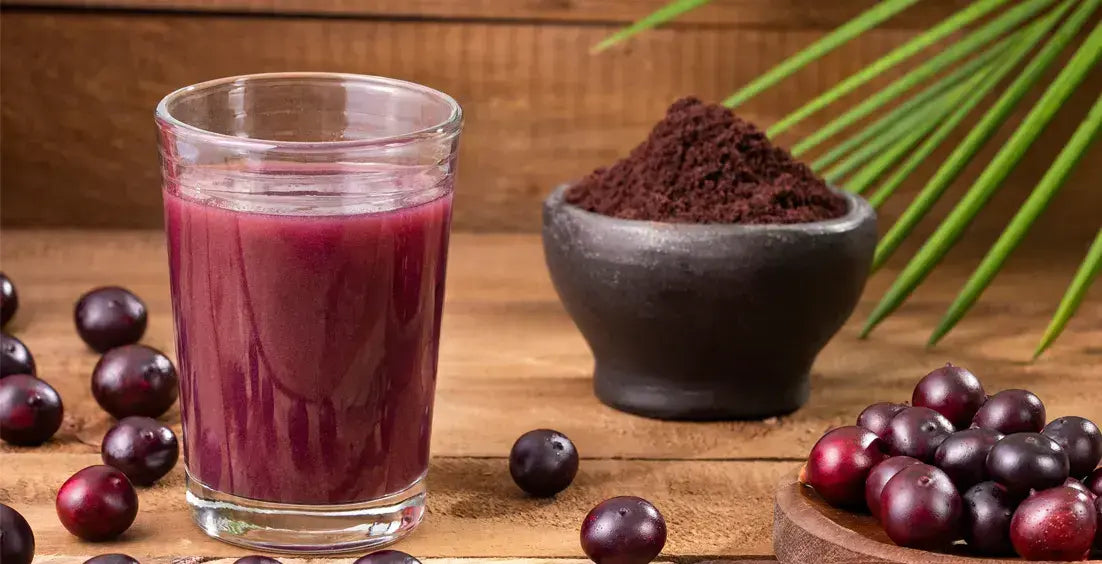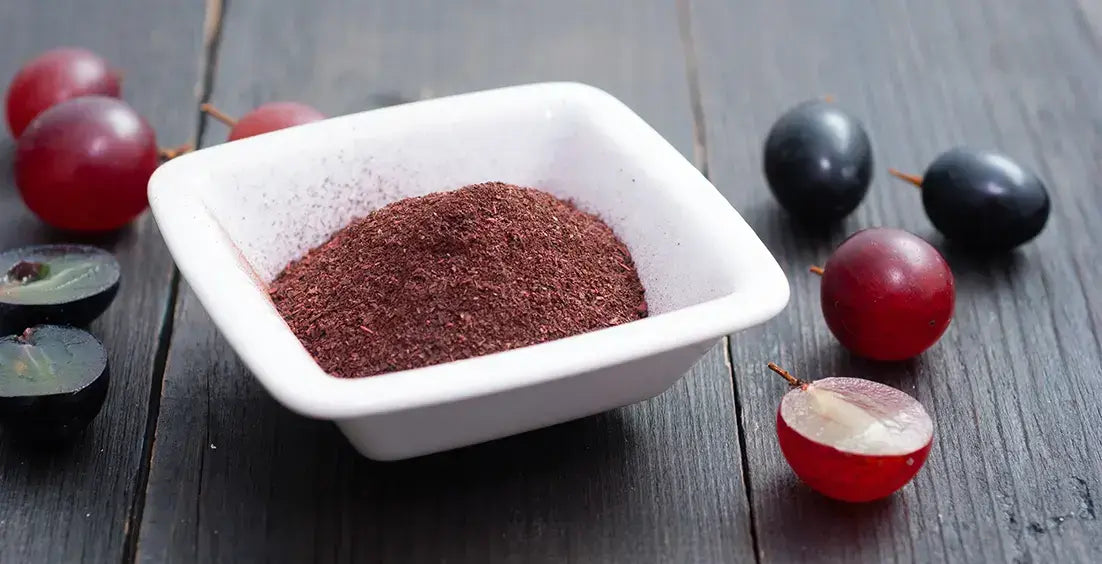Best Foods Rich in Vitamin K: Greens, Meats, and More
Boost your wellness with our top picks for the best Vitamin K foods. From greens to cheeses, find your favorites here.
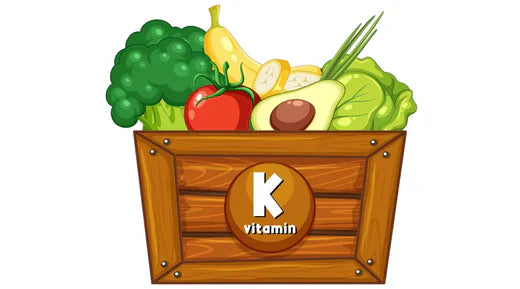
Ever wondered about Vitamin K? It's that little nutrient that doesn't always get the spotlight, but trust me, it's a real MVP in your body. Let's dive into the world of vitamin K and discover the best foods rich in Vitamin K to maintain healthy vitamin K levels. No fancy jargon here – just straightforward info to help you make smart food choices.
What's the Deal with Vitamin K?
Alright, let's start with the basics. Vitamin K isn't just one thing – it's actually a group of vitamins that come in two main flavors: K1 and K2.
- Vitamin K1 (phylloquinone): This is the most common form, and you'll find it hanging out in plant foods, especially those leafy greens your mom always told you to eat.
- Vitamin K2 (menaquinone): This one's a bit trickier to find. It's in some animal products and fermented foods.
Why Your Body Loves Vitamin K
- It's your body's personal EMT: Vitamin K helps your blood clot when you get a cut. Without it, you'd be like a leaky faucet!
- Bone builder extraordinaire: It teams up with calcium to keep your bones strong and sturdy.
- Heart helper: Some studies suggest it might help keep your ticker in top shape.
Benefits of Consuming Vitamin K-Rich Foods
Vitamin K isn't just important for blood clotting – it has a wide range of health benefits. Here's why you should consider adding more vitamin K-rich foods to your diet:
- Blood Clotting Support: Vitamin K is essential for producing proteins that help blood clot. When you get a cut, vitamin K helps your body stop excessive bleeding by promoting clot formation.
- Bone Strength: Vitamin K helps regulate calcium, a critical mineral for bone health. By controlling calcium’s role in the body, vitamin K ensures that bones remain strong and resilient, potentially reducing the risk of fractures and conditions like osteoporosis.
- Heart Health: Research suggests that vitamin K may help manage arterial stiffness, promote better circulation, and potentially lower the risk of cardiovascular diseases by preventing calcium buildup in arteries.
- Anti-inflammatory Benefits: There is growing evidence that vitamin K has anti-inflammatory properties, which can help reduce inflammation in the body, potentially lowering the risk of chronic diseases such as arthritis.
Vitamin K Daily Intake Requirements by Age & Life Stage
Vitamin K requirements vary depending on age, gender, and life stage. Here’s a breakdown of daily recommendations:
Infants:- 0–6 months: 2 mcg/day
- 7–12 months: 2.5 mcg/day
- 1–3 years: 30 mcg/day
- 4–8 years: 55 mcg/day
- Women (19 years and older): 90 mcg/day
- Men (19 years and older): 120 mcg/day
Slightly higher intake may be necessary. Consult a healthcare provider for tailored advice.
This breakdown helps ensure that each age group and life stage gets the appropriate amount of vitamin K to support healthy bone development and blood clotting.
Always consult with a pediatrician or healthcare provider before adjusting the vitamin K intake for infants or children or individuals who are pregnant, breastfeeding, or managing a medical condition. Their needs may vary, and excessive intake can have adverse effects.
Plant-Based Sources of Vitamin K1
Let's talk about the best sources of vitamin K1. Spoiler alert: it's time to go green!
Leafy Greens: Packed with Vitamin K1
- Kale: This trendy green isn't just for hipsters. One cup of cooked kale packs a whopping 544% of your daily value (DV)!
- Spinach: Popeye was onto something. A cup of cooked spinach gives you 145 mcg – that's 121% of your DV.
- Collard Greens: Southern comfort food that's actually good for you. Half a cup cooked delivers 386 mcg (322% DV).
- Swiss Chard: This colorful leaf brings 398 mcg per raw leaf (332% DV).
- Mustard Greens: Spice up your life and your vitamin K intake. Half a cup cooked provides 415 mcg (346% DV).
Other Veggie
- Broccoli: Your childhood nemesis is actually a nutrient powerhouse. Half a cup cooked gives you 110 mcg (92% DV).
- Brussels Sprouts: These little cabbage lookalikes pack 109 mcg per half cup cooked (91% DV).
- Green Beans: A classic side dish with benefits – 30 mcg per half cup cooked (25% DV).
- Cabbage: Coleslaw, anyone? A cup of cooked cabbage offers about 108 mcg.
Herbs
- Parsley: Not just a garnish! A quarter cup of fresh parsley has about 246 mcg.
- Basil: This pasta's best friend contains about 325 mcg per quarter cup dried.
- Thyme: A little goes a long way – just a teaspoon of dried thyme has about 28 mcg.
Fruits
- Kiwi: This fuzzy fruit brings 28 mcg per medium fruit (23% DV).
- Avocado: Your toast's favorite topping has 21 mcg per half fruit (18% DV).
- Prunes: Nature's candy with 28 mcg per 5 prunes (24% DV).
Oils
- Soybean Oil: A tablespoon contains 25 mcg (21% DV).
- Olive Oil: Not as high as soybean, but still a healthy choice with some vitamin K.
Vitamin K2: Found in Animals and Fermented Foods
Now let's explore the world of vitamin K2. It's a bit harder to find, but worth seeking out!
Fermented Foods
- Natto: This fermented soybean dish is the undisputed champ of vitamin K2. One ounce packs a punch with 313 mcg (261% DV)!
Animal Products
- Liver: Beef liver brings 72 mcg per slice (60% DV), while goose liver paste offers 369 mcg per 100 grams.
- Meat: Pork chops offer 59 mcg per 3 ounces (49% DV), while chicken provides 51 mcg per 3 ounces (43% DV).
- Eggs: While not as high as meat, eggs do contribute some K2 to your diet.
Dairy Delights
- Hard Cheeses: Gouda, Edam, and other hard cheeses offer about 25 mcg per ounce (20% DV).
- Soft Cheeses: Brie and Camembert contain around 17 mcg per ounce (14% DV).
- Full-fat Milk: While not super high, it does contribute some K2 to your diet.
The Unique Benefits of Vitamin K2
- Bone Health: Vitamin K2 is vital for regulating calcium deposition in bones, enhancing bone strength and density. Unlike Vitamin K1, K2 is more effective in promoting bone mineralization.
- Heart Health: Vitamin K2 helps reduce arterial calcification, which is linked to heart disease. It directs calcium to the bones rather than accumulating in the arteries.
Dr. Aaron Erez says,
“As a Certified Functional Medicine practitioner, I know the consequences of Vitamin K deficiency. Without enough K1 and K2, patients can suffer impaired blood clotting, bone fragility, and calcium buildup in arteries. Maintaining adequate Vitamin K promotes bone and heart health, and may help manage chronic inflammatory diseases. My practice focuses on prevenring and managing chronic disease through nutrition and lifestyle. For K2, I recommend eating natto, hard cheeses, egg yolks and grass-fed meat. K1 is found in leafy greens like kale and spinach. For some patients, K2 supplements provide higher doses that diet alone can't achieve. Vitamin K shows promise for supporting long term health.”
Making Vitamin K a Part of Your Life
Now that you know where to find vitamin K, let's talk about how to get more of it into your diet:
- Green up your plate: Try to incorporate a serving of leafy greens or other vitamin K vegetables into your diet at least once daily.
- Herb it up: Use fresh herbs in your cooking for a flavor and nutrient boost.
- Snack smart: Keep kiwis, avocados, or a handful of prunes on hand for quick, vitamin K-rich snacks.
- Don't fear fat: A little healthy fat helps your body absorb vitamin K better, so don't shy away from a drizzle of olive oil on your salad.
- Experiment with fermented foods: Try incorporating natto or other fermented foods into your diet for a K2 boost.
Easy Ways to Incorporate Vitamin K into Your Meals
- Breakfast: Spinach smoothie or a kale and avocado omelet.
- Lunch: Collard green wraps or a kale and broccoli salad with a vinaigrette made from olive oil.
- Dinner: Roasted Brussels sprouts with chicken or pork chops for a Vitamin K2 boost.
- Snacks: Keep prunes or kiwi on hand for a quick Vitamin K snack. Homemade guacamole with avocado for a heart-healthy treat.
This video offers a clear explanation of the topic.

What Happens When You’re Low on Vitamin K?
While vitamin K deficiency is rare in adults, it can happen. Here's what to watch out for:
- Easy Bruising: One of the first signs of low vitamin K is excessive bruising. If you notice bruises appearing with minimal impact, it could indicate impaired blood clotting.
- Prolonged Bleeding: Minor cuts or injuries might take longer than usual to stop bleeding if you don’t have enough vitamin K.
- Prolonged Bleeding: Minor cuts or injuries might take longer than usual to stop bleeding if you don’t have enough vitamin K.
- Frequent Nosebleeds: Nosebleeds that occur frequently or without apparent reason can be another sign of vitamin K deficiency.
- Bleeding Gums: If your gums bleed while brushing or even without any obvious cause, this could be related to a lack of vitamin K.
- Blood in Urine or Stool: In severe cases, vitamin K deficiency can cause internal bleeding, which might result in blood appearing in the urine or stool.
If you experience these symptoms, it’s a good idea to consult your healthcare provider to check your vitamin K levels.
Health Conditions Linked to Vitamin K Deficiency
- Bone Health: Insufficient Vitamin K can lead to osteoporosis due to poor calcium regulation.
- Cardiovascular Health: Vitamin K deficiency may lead to arterial calcification, increasing the risk of heart disease.
- Chronic Inflammatory Diseases: Some studies suggest a deficiency in Vitamin K can exacerbate inflammatory diseases, such as rheumatoid arthritis.
- Cancer Risk:Emerging research indicates that Vitamin K may play a role in preventing liver and prostate cancer by inhibiting tumor growth.
Special K Considerations
- Newborns: Babies often get a vitamin K shot at birth to prevent bleeding problems.
- Blood Thinners: If you're on blood thinners like warfarin, keep your vitamin K intake consistent and talk to your doctor about any dietary changes.
- Supplements vs. Food: While supplements are available, getting your vitamins from food is usually the way to go unless your doctor says otherwise.
Can Vitamin K Deficiency Be Cured?
The good news is that vitamin K deficiency is treatable. Here’s how you can address it:
- Dietary Adjustments Increasing your intake of vitamin K-rich foods is the most natural way to cure a deficiency. Foods like kale, spinach, broccoli, and natto are all excellent choices.
- Supplements: If dietary changes aren’t enough, vitamin K supplements can provide a concentrated dose of this essential nutrient. Always consult with a healthcare provider before starting supplements.
- Medical Intervention: In more severe cases, healthcare providers may recommend vitamin K injections. This is especially important for people who need to raise their levels quickly due to bleeding disorders or surgery.
-
With the right approach, vitamin K deficiency can be reversed, helping you restore healthy blood clotting and bone strength.
The Perks of Packing in Vitamin K
 Benefits of Vitamin K
Benefits of Vitamin K
Getting enough vitamin K isn't just about avoiding deficiency. It might also help:
- Keep your bones strong
- Support heart health
- Helps with PMS.
- Fights Cancer.
- Helps blood clotting.
- Improves brain function.
- helps maintain teeth and gums.
Conclusion
There you have it – your guide to the best vitamin K foods! Remember, the key is variety. Mix and match these foods to keep your meals interesting and your body happy.
And hey, if you're ever unsure about your vitamin K needs, especially if you have any health conditions or are on medications, don't hesitate to chat with your healthcare provider. They're there to help you make the best choices for your unique situation.
So go ahead, add some green to your scene, maybe try some natto (if you're feeling adventurous), and give your body the vitamin K it craves. Your bones, blood, and heart will thank you!
FAQs
Our Top Picks
About WOWMD Staff
The WOWMD Staff category features a diverse team of writers, each bringing specialized knowledge in areas such as nutrition, fitness, wellness, and more. Articles in this category benefit from insights provided by multiple experts. All content is peer-reviewed and regularly updated to ensure compliance with our editorial standards.
Popular Stories
- Best Hair, Skin, and Nails Gummies for Kids: Healthy Growth
- Best Melatonin Gummies For Kids: Sleep Solutions & More
- Best Multivitamin Gummies for Kids: Simple Guide to Health
- Does Ashwagandha Help You Sleep?
- Gut Health Supplements For Women- According to a Nutritionist
- Magnesium for Muscle Health and Recovery
References
- Vitamins K1 and K2: The Emerging Group of Vitamins Required for Human Health - https://www.ncbi.nlm.nih.gov/pmc/articles/PMC5494092/
- Try These 21 Healthy Foods Full of Vitamin K - https://health.clevelandclinic.org/foods-high-in-vitamin-k
- Vitamin K and Bone Metabolism: A Review of the Latest Evidence in Preclinical Studies - https://www.ncbi.nlm.nih.gov/pmc/articles/PMC6040265/
- Vitamin K2-a neglected player in cardiovascular health: a narrative review - https://pubmed.ncbi.nlm.nih.gov/34785587/
Evidence Based Research
This WOWMD content has been reviewed, as well as checked for facts, so as to guarantee the best possible accuracy.
We follow a strict editorial policy, especially related to the sources we use. Our articles are resourced from reputable online pages, with research drawn from academic institutions and peer-reviewed studies. You can click on the numbers in the parentheses (1, 2, etc.) and check out those references.
The feedback form on this page can be used to report content that is not accurate, up-to-date or questionable in any manner.
We do NOT intend for the information presented through our articles to replace the medical relationship with a qualified physician, nor does it represent specialized advice.


 Alpha Man Power Pack
Alpha Man Power Pack All-Day Fat Burn Trio
All-Day Fat Burn Trio Better Immunity Bundle
Better Immunity Bundle  Calm & Sleep Duo
Calm & Sleep Duo Cognitive Health & Vision Combo
Cognitive Health & Vision Combo Complete Weight Loss Bundle
Complete Weight Loss Bundle Core Vitality Trio
Core Vitality Trio Energy Booster Combo
Energy Booster Combo Focus Fuel Trio
Focus Fuel Trio Glow & Balance Duo
Glow & Balance Duo Health Balance Trio
Health Balance Trio Heart Care Bundle
Heart Care Bundle Joint Health Support Combo
Joint Health Support Combo Men's Immunity & Prostate Health Bundle
Men's Immunity & Prostate Health Bundle Metabolism Boost Duo
Metabolism Boost Duo Natural Skin Care Bundle
Natural Skin Care Bundle Peak Performance Trio
Peak Performance Trio Relax & Recharge Duo
Relax & Recharge Duo Skin Detoxification Bundle
Skin Detoxification Bundle Smart Energy Trio
Smart Energy Trio Stress + Energy + Wellness Combo
Stress + Energy + Wellness Combo  Total Burn Ignite Trio
Total Burn Ignite Trio Total Harmony Pack
Total Harmony Pack Vitality Power Duo
Vitality Power Duo Workout Supplements Combo
Workout Supplements Combo



















